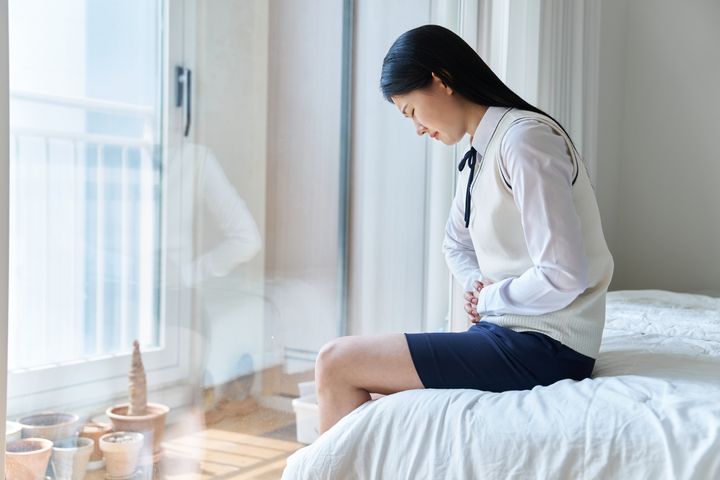While enjoying my first visit to Portugal in December, I had the misfortune of coming down with food poisoning late one night. I suspect some raw oysters I ate that day were the culprit, but I’ll never know for sure.
The result was 12 hours of GI hell and a canceled tour of the palaces of Sintra. All told, it could’ve been worse, but in the moment, I wouldn’t have wished that agony on my worst enemy. Unfortunately, food poisoning is an all-too-common experience for travelers.
“Food poisoning is typically caused by consuming contaminated food or water containing harmful microorganisms such as bacteria, viruses, parasites, or toxins,” Dr. Mark Fischer, regional medical director of International SOS, told Wispria.
The term “food poisoning” thus refers to the foodborne illnesses that result from the ingestion of these contaminants, which can result in gastrointestinal issues like vomiting and diarrhea.
“Food poisoning is more likely when traveling to a foreign country since our bodies are not used to the local bacteria found in the food and water,” Fischer said. “Our bodies may have a negative response to the new bacteria being introduced.” No one wants to have to spend their precious vacation time stuck in a hotel room rushing to the toilet every half hour and wondering when the misery will end.
“The good news is most cases are mild and shouldn’t greatly impact your trip,” said Dr. Shengyi Mao, an internist and pediatrician at The Ohio State University Wexner Medical Center.
If you find yourself in this situation, there are also steps you can take to alleviate the discomfort and symptoms. Below, Fischer and Mao break down what to do if you contract food poisoning while traveling.
Stay hydrated.
“If you believe you have food poisoning while traveling, it’s crucial to stay hydrated by drinking plenty of fluids and electrolytes,” Fischer said.
As you weather the symptoms, try to drink electrolyte-heavy drinks like Gatorade or add powdered hydration multipliers to your water. Sip slowly if you’re experiencing nausea.
Stick to bland foods.
“Stick to bland food until symptoms subside,” Fischer advised.
Don’t force yourself to eat more than you can handle, and follow the BRAT (bananas, rice, applesauce and toast) diet if possible. Saltine crackers can be helpful as well.
“Eat small amounts to keep your energy up,” Mao said.
Rest up.
Just as you shouldn’t force yourself to eat a ton, don’t push yourself to move more than necessary as you experience the symptoms of food poisoning. Getting comfortable can be difficult, but try to stay in bed when you aren’t in the bathroom.
“You should rest as much as possible and monitor your body temperature,” Fischer said.
Monitor your symptoms.
“Symptoms of food poisoning can vary depending on the source of the infection,” Fischer said. “Food poisoning commonly causes abdominal cramps, nausea, vomiting, diarrhea, lack of energy, fever and/or loss of appetite.”
He noted that non-gastrointestinal symptoms like joint pains can also be associated with certain foodborne infections. Pay attention to the symptoms that arise and how they evolve over time.
Consider over-the-counter meds.
“In some circumstances, taking an over-the-counter medication to help manage symptoms may be helpful,” Fischer said.
Taking Tylenol can reduce your fever, and ibuprofen might help with stomach cramps (though it might also irritate your stomach so take sparingly). Many doctors advise against taking anti-diarrheal meds like Imodium unless necessary, as diarrhea is part of the body’s natural immune response to expel toxins from your system.
If you’re in a foreign country, try to research the equivalent medications available there and look up what the active ingredients are called in the local language.
Seek medical attention if things worsen.
“A few warning signs patients should know about are persistent fever, blood in the stool, severe abdominal pain or dehydration,” Mao said. “For these signs, I would recommend seeking medical attention.”
If your symptoms worsen to an alarming level in a foreign country, do some research or call your hotel front desk or travel insurance provider for advice on how to find proper care. Even if you didn’t purchase specific travel insurance or travel health insurance, your credit card might offer this benefit.
In addition to covering medical treatment, your insurance might cover the cost of changing your flights or other travel plans due to illness. Be sure to read the fine print for your policy and keep records in real time.
Take steps to alleviate the issue before and during the trip.
Your travel food poisoning treatment can begin even before you depart for your trip.
“When traveling abroad, I’d recommend packing a simple medical kit containing over-the-counter medications for digestive issues as well as rehydration solutions that contain electrolytes so that you are prepared for any potential illness,” Fischer said. “Ahead of traveling, research destination-specific health risks, including common foodborne illnesses, and consider vaccinations or preventive measures recommended for the region.”
Consider making a list of reputable healthcare facilities and resources at your destination in advance in case of an emergency as well.
“Because traveler’s diarrhea is common, it may be a good idea to consult with your physician at least six weeks before foreign travel to discuss whether or not you should bring medications with you in case you develop traveler’s diarrhea,” Mao said.
Do your best to prevent illness by practicing good hygiene ― like washing your hands before meals. Pay attention to food handling processes as you dine out, and if you’ve been prone to digestive issues in the past, avoid foods that trigger your system.
“When traveling, always be cautious about food and water sources and opt for bottled or treated water and cooked, hot foods from reputable establishments,” Fischer said. “In regions that are unfamiliar or are known for certain health risks, try to stick to cooked foods that are handled up to regulation.”

